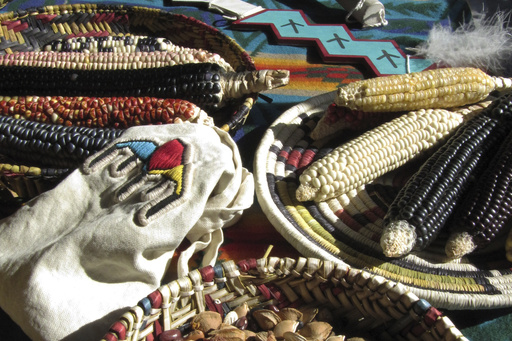Federal authorities have partnered with the state of Arizona to commence implementation of a settlement agreement established with the Hopi Tribe nearly 30 years ago, an event that tribal leaders have hailed as a significant milestone.
On Friday, legal representatives of the government submitted condemnation paperwork aimed at transferring numerous square miles of state land into trust for the Hopi Tribe. As part of this agreement, the tribe will pay the state approximately $4 million in exchange for more than 31 square miles (around 80 square kilometers) of land close to Winslow.
This development could pave the way for additional land transfers into trust, aimed at resolving the complex patchwork of land ownership that affects much of the land used for ranching by the tribe in northeastern Arizona.
The groundwork for Friday’s filing traces back to the 1996 enactment of the Navajo-Hopi Land Dispute Settlement Act, which formalized an agreement between the Hopi Tribe and the federal government regarding the conditions for placing land into trust for the tribe.
The disputes over land in the northeastern part of Arizona have been fraught with tension, with the Hopi and Navajo Nation in conflict for generations. Previous attempts by the federal government to encourage shared land ownership between the tribes were unsuccessful, resulting in Congress’s 1974 decision to divide the territories and require tribal members to vacate each other’s reservations.
This division created a scenario where the vast Navajo Nation—covering 27,000 square miles—completely enveloped the smaller Hopi reservation, which spans 2,500 square miles.
Since the 1996 agreement, the Hopi Tribe has been active in acquiring private land and has sought state lands to be placed into trust to enhance property consolidation for the tribe’s advantage.
This day has been long awaited. There have been numerous obstacles throughout the years, including an unsuccessful effort in 2018 when the tribe sought local government support for the transfer of land south of the heavily traveled Interstate 40. That initiative encountered challenges, especially concerning national forest areas near Flagstaff.
Hopi Chairman Tim Nuvangyaoma expressed gratitude for all who contributed to making the condemnation filing possible, noting the significance of the timing. He remarked, “Within Hopi, it is our time of the soyal’ang ceremony — the start of the New Year and the revitalization of life.”
Governor Katie Hobbs, who first visited the Hopi reservation earlier this year, acknowledged the lengthy struggle the tribe has faced in advocating for their rights and recognized that previous politicians had often ignored the perspectives of tribal communities.
“All Arizonans deserve the opportunity to flourish and a place to call home, and this agreement moves us closer to realizing those values,” she stated on Friday.
Looking ahead, more land transfers are on the horizon, promising economic opportunities. Just last November, the Navajo Nation signed a warranty deed to bring a tract of land near Flagstaff into trust, fulfilling certain federal obligations to assist members of the tribe who were forcibly removed due to the land dispute with the Hopi Tribe. Navajo leaders are contemplating the establishment of a casino on this newly acquired land, projecting substantial economic advantages.
For the Hopi Tribe, the addition of more land into trust signifies increased economic possibilities as well. The state lands near Winslow that feature in the condemnation documents are interspersed with Hopi-owned properties and have historically been leased to the tribe for agricultural and ranching activities, as noted by the U.S. Justice Department.
Federal officials indicated that the condemnation filing made on Friday marks the initiation of a planned series of actions that will eventually facilitate the transfer of over 170 square miles (approximately 440 square kilometers) of state land into trust for the Hopi Tribe.



